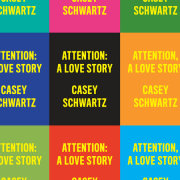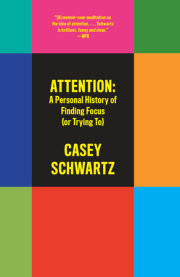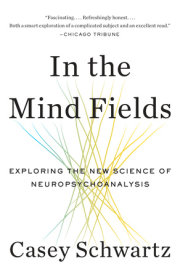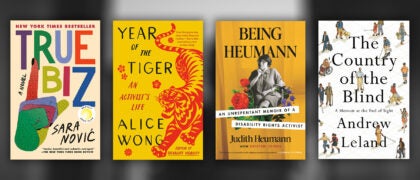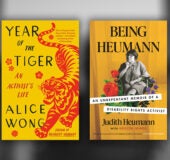Part III: A Brief History of What Matters
Chapter 5 So what, then, is the point? What is the reason to cultivate and devote one’s single-minded attention? Is this kind of attention even still a possibility? Was it ever? In the years after Adderall, these were the questions I often thought about.
I approached from all angles. Walking the loop in Prospect Park, I listened to attention self-help books through my headphones, books such
as Deep Work by Cal Newport and
Hyperfocus by Chris Bailey. I was listening not in order to help myself (or so I believed), but, rather, to get a sense of the latest advice, and the language in which attention was now commodified. Bailey, speaking in existentially unruffled tones, offered many useful suggestions: Leave your phone in the other room when you need to get work done. Drink more caffeine. “We are what we pay attention to,” he reminds us. Then he said something that surprised me: “Letting your attentional space overflow affects your memory.”
Indeed, I soon discovered that this is a classic finding of memory research, known for decades: distraction breeds forgetting. To say it another way, the way the neuroscientists say it, interrupting someone’s attention by introducing a “secondary task” (responding to a text message, for example) means this person will not “encode” their present circumstance in all the rich, associative detail necessary for a memory to form and hang around awhile. Attention, it turns out, does not concern only our present circumstance. It bears directly on both our past and our future. What will fail to make it into my memory bank because I’m too busy scanning headlines and replying to text messages to pay attention to my life? And yet, even in the midst of that very train of thought, I go ahead and pull my phone out of my pocket, for no particular reason.
That’s how it is. We have entered into a situation where the gadgets we carry around with us—and the cognitive rhythm they dictate—are pitted against the possibility of deep engagement, or thorough “encoding.” They ask us to be anywhere but here, to live in any moment but now. What struck me was this: we treat such changes as inevitable, even while we lament them, seek antidotes and alternatives, enroll in meditation classes, digital detoxes, silent retreats. I wanted to understand why we choose to pixelate our own attention spans, then hungrily search for ways to patch ourselves back together.
I found that I was still asking such basic questions as: What do we mean when we talk about attention? Perhaps it was inevitable to ask such questions now, in our Silicon age, glued to our screens as we are, our attention in pieces, forever divided among the countless demands our devices ask of it. In any event, these were the questions I found myself asking, found myself stuck with. In the years after Adderall, these questions became the quest I embarked upon.
In the beginning, I did not see how desperately personal this whole thing really was. After all, what is the question of attention really about, if not this: What is worth paying attention to? Hanging on to?
What matters?
Copyright © 2020 by Casey Schwartz. All rights reserved. No part of this excerpt may be reproduced or reprinted without permission in writing from the publisher.



